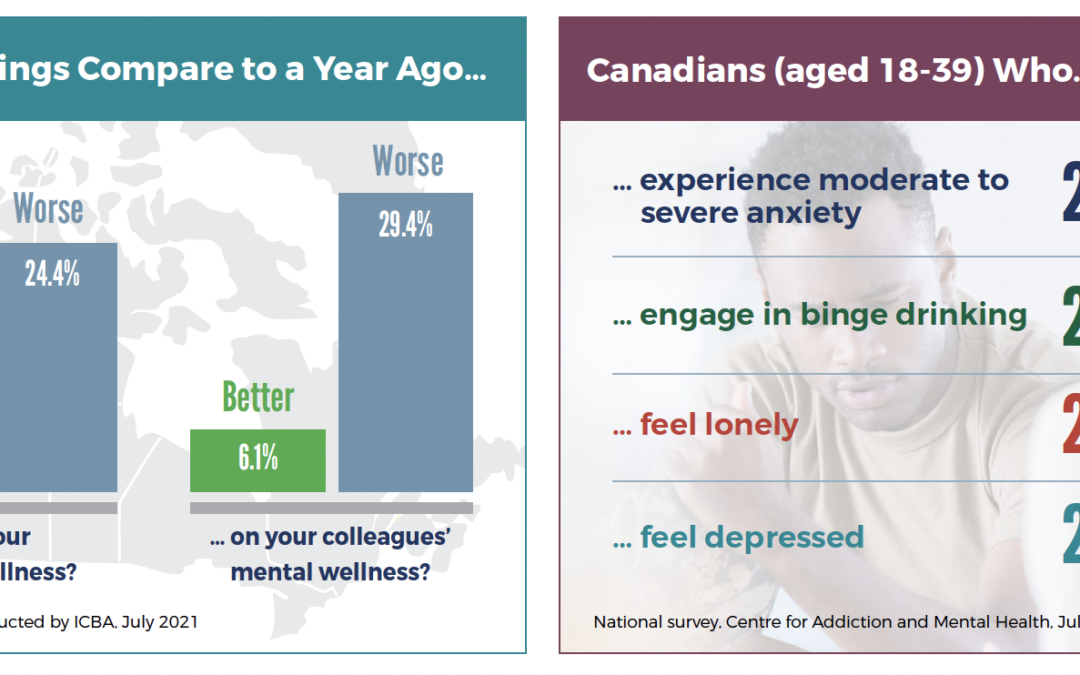The Fall 2021 version of the BC Construction Monitor is now available. One of the important measures in it is the increase in usage of ICBA Benefits’ Employee Assistance Program, which shows that our Wellness program is being successful in raising awareness of mental health — and that an EAP is a place to get help.
ICBA has offered benefits plans since the 1970s, and today with more than 110,000 people on our plans, ICBA Benefit Services is among the largest providers in Western Canada. In combination with our recently launched Workplace Wellness Program, this gives us unique insights on the health of our industry and its people.
 During the pandemic, the BC construction industry has worked hard and successfully to minimize worksite transmission of COVID19. But we are seeing health impacts of other types, reflected most notably in a big uptick in use of our Employee Assistance Program.
During the pandemic, the BC construction industry has worked hard and successfully to minimize worksite transmission of COVID19. But we are seeing health impacts of other types, reflected most notably in a big uptick in use of our Employee Assistance Program.
This comes as no surprise, as workers across all sectors deal with stresses relating to physical and mental wellbeing, resulting from the strains of disrupted routines and social isolation. Mental health is an issue running very deep, but very silent, throughout Canadian society, and the statistics for construction workers are sobering – a suicide rate seven times the national average, and construction workers accounting for 55 per cent of opioid overdose deaths.
Studies show that cost remains a significant barrier for many people who need help with mental health and substance abuse; and that twothirds of employees either don’t have access to employer support in this area, or don’t know if they do and aren’t sure what support is available.
All construction contractors want to see the men and women working on their job sites physically and mentally well. For ICBA member and client companies, the support is there, and the need for it is greater than ever.
As we recover from the COVID19 global pandemic, a deeper focus on health, safety and wellness simply has to be one of construction’s most important priorities. To keep people and families whole, we must normalize the wellness conversation.
See all the stats in our fall Construction Monitor HERE.

